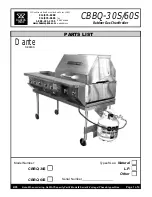
4 200 191 / 01
10
The room temperatures and
heating system operating
times have a decisive
influence on fuel
consumption.
A 1
°
C lower room temperature
yields a fuel saving of up to 6%. So
note the following tips:
•
Avoid room temperatures of
over 20
°
C and set your heating
system accordingly.
•
It is worthwhile closing the
radiator valves in unused rooms
providing there is no risk of frost
and no damage to the building
structure or furnishings is
anticipated.
•
Heat recycling takes place in the
main living rooms through body
heat, television sets, chimneys
and also solar radiation. These
cannot be compensated with a
weather dependent control. It is
worthwhile installing individual
thermostatic radiator valves in
these rooms.
When there is a draught, it’s
not only unpleasant but it
also means a loss of heat
energy.
So you’ll save fuel if you . . .
•
Keep doors and windows
closed in the winter
•
Close flue flaps when the fire is
out
•
Use kitchen and bathroom fans
only when steam and odours
have to be extracted
•
Ventilate for short periods, but
frequently
.
•
Seal doors and windows to
avoid permanent leakage
losses.
Keep in valuable heat with
insulation.
Utilise these possibilities and . . .
•
Close door and window shutters
at night
•
Make sure heating and hot
water pipes in unheated rooms
are insulated.
The lowest possible radiator
temperature prevents
unnecessary heat loss.
So radiators must always be
able to transfer their heat to
the room unhindered. Avoid
therefore:
•
Covered radiators
•
Windowsills which allow no heat
to pass through because they
are occupied by objects.
Savings are also possible
with hot water systems.
•
Set the calorifier temperature as
low as possible. Find the lowest
possible temperature setting at
which sufficient hot water is still
available.
•
If your system includes a hot
water circulation pump, it’s
worthwhile switching this off at
night with a timer clock.
How to save energy!






























